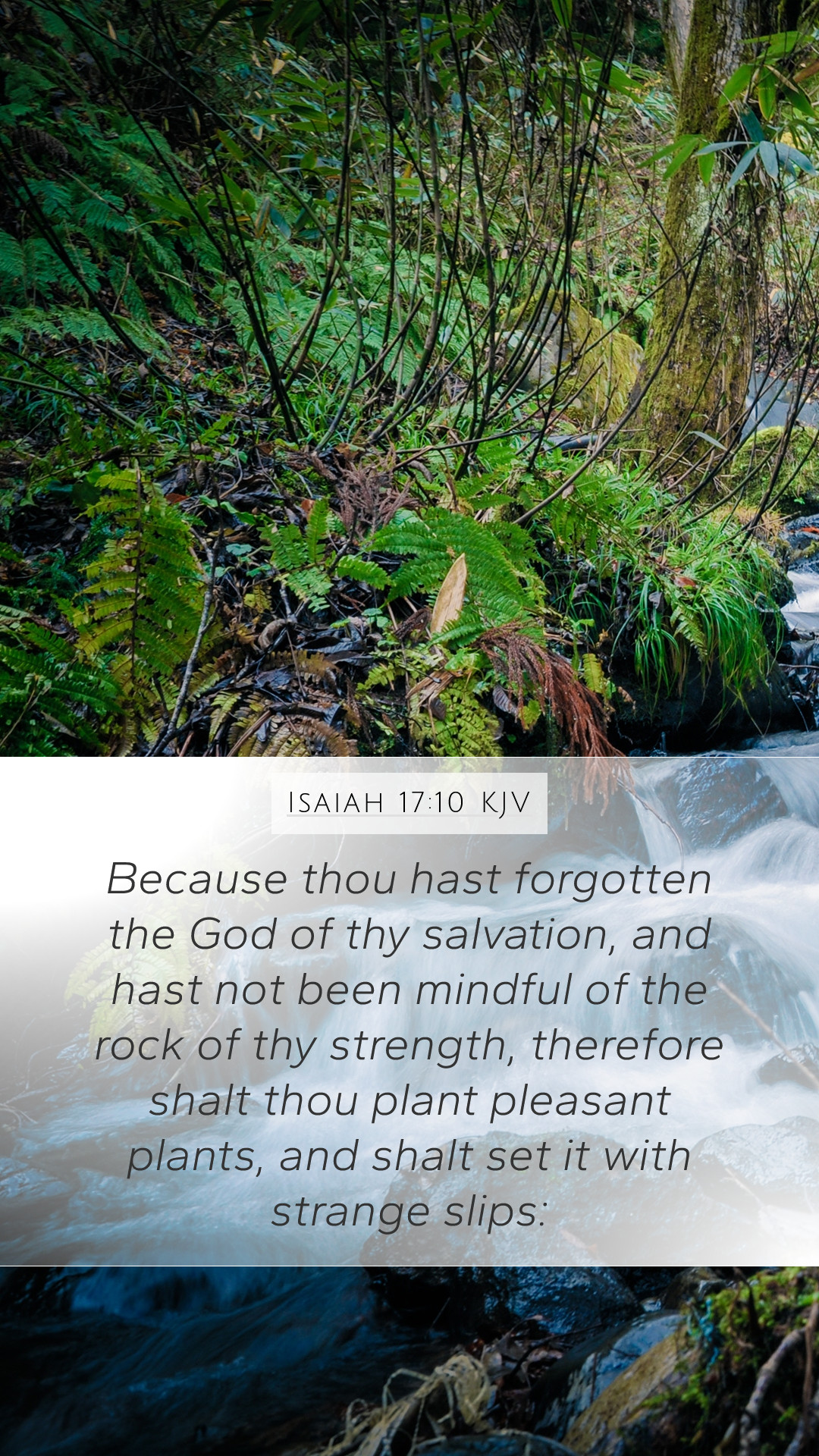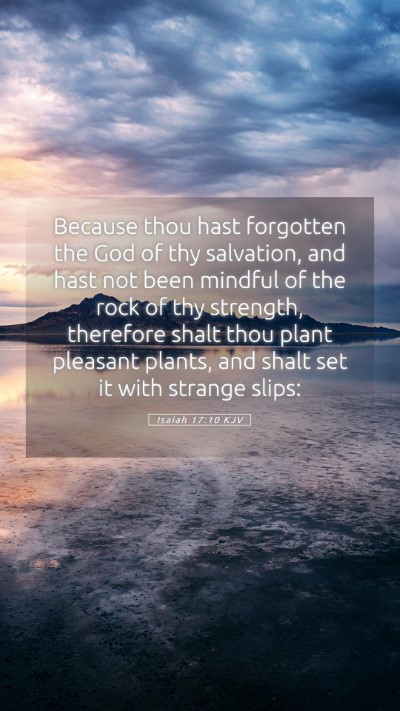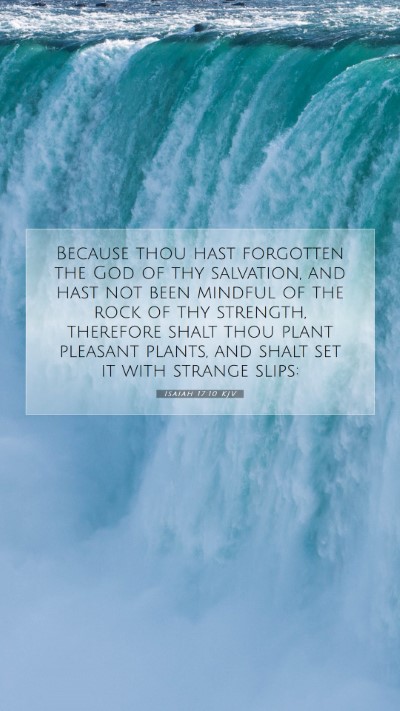Understanding Isaiah 17:10
In this analysis, we explore the profound implications of Isaiah 17:10, aiming to provide clarity on its meanings, interpretations, and explanations through insights derived from esteemed public domain commentaries like those of Matthew Henry, Albert Barnes, and Adam Clarke.
Bible Verse Text
“For you have forgotten the God of your salvation, and have not been mindful of the rock of your stronghold; therefore, you will plant pleasant plants and set out foreign seedlings.” (Isaiah 17:10)
Verse Explanation
This verse reflects a critical spiritual condition faced by the people of Israel. Their forgetfulness towards God leads not only to spiritual decline but also physical repercussions as indicated in the agricultural metaphor used. The choices made in earthly, material matters, such as planting pleasant plants and foreign seedlings, highlight a reliance on foreign alliances and worldly systems rather than on God.
Insights from Commentaries
-
Matthew Henry:
Henry observes that forgetting God leads to a dependence on human wisdom and strategies rather than divine guidance. He emphasizes the danger of planting foreign seedlings as a symbol of adopting foreign practices, which distract and lead people away from their true source of strength.
-
Albert Barnes:
Barnes highlights that the verse specifically points to the neglect of Jehovah as the source of security—a reminder of the importance of spiritual awareness and the fate that comes with ignoring divine intervention.
-
Adam Clarke:
Clarke elaborates on the consequences of forgetting God, underlining the futility of relying on external resources for sustenance, as they ultimately do not provide true security or salvation.
Application of Isaiah 17:10
When interpreting Isaiah 17:10, we must consider its application in our daily lives as follows:
- Recognizing the importance of trusting in God over earthly alliances and dependencies.
- Understanding that spiritual forgetfulness can lead to personal and communal consequences.
- Being mindful of the practices and influences we adopt from the world, ensuring they align with biblical values.
Bible Study Insights
This verse serves as a profound bible study lesson for individuals and bible study groups seeking to delve deeper into the significance of maintaining spiritual awareness. It is a catalyst for online bible study sessions focused on the themes of reliance and remembrance of God in everyday life.
Historical Context
The historical context of Isaiah 17 is critical for understanding its implications. At the time, Israel was facing external pressures that led them to seek alliances with foreign nations, symbolizing a lack of faith that God would protect and provide for them. The prophet Isaiah seeks to remind them of their covenant with God, emphasizing that true strength lies in His promises, not in human strategies.
Cross References
For a more comprehensive understanding, consider exploring these related verses:
- Jeremiah 2:13 - "For my people have committed two evils: they have forsaken me, the fountain of living waters, and hewed them out cisterns, broken cisterns, that can hold no water." This verse aligns with the themes of forsaking God and seeking false sources of sustenance.
- Hosea 10:1 - "Israel is an empty vine; he brings forth fruit unto himself." This passage similarly discusses Israel's dependence on external sources rather than God.
- Isaiah 51:12 - "I, even I, am he that comforteth you: who art thou, that thou shouldest be afraid of a man that shall die, and of the son of man which shall be made as grass?" This emphasizes God's role as the ultimate comforter and provider.
Conclusion
The message contained in Isaiah 17:10 serves as a relevant reminder for believers about the dangers of spiritual negligence. It encourages reflection on our reliance on God as the ultimate source of strength, guiding our decisions and interactions with the world.
Engage Further
As we strive for a deeper bible verse understanding, let us take the lessons from this and apply them thoughtfully in our lives.


